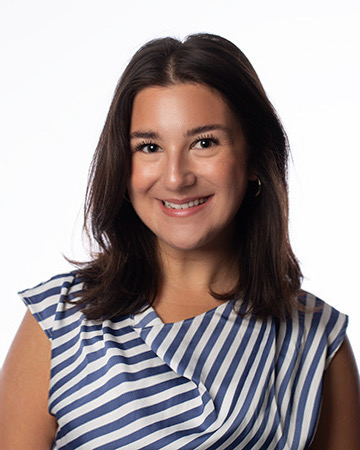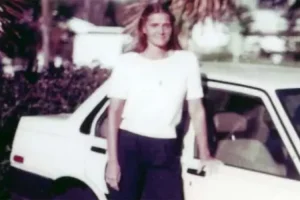UWL Democrat and Republican students and their views on the upcoming midterm election
Image retrieved from hopkinsmedicine.org.
November 7, 2022
As we come to the end of the 2022 midterm election cycle, tensions continue to rise in close races across the country. Early in-person voting has ended in Wisconsin and absentee ballots have been received by the thousands. The final chance to vote is in person at the polls on Tuesday, Nov. 8. The University of Wisconsin-La Crosse is hosting a designated polling station in the Bluffs room on the second floor of the Student Union from 7:00 a.m. to 8:00 p.m. on election day tomorrow.
Rj Friske and Justin Poley are two politically active students at UWL, and each of them belongs to one of two major political parties in the country. While they do not share the same viewpoints on some topics, both realize the importance of young voters’ voices in this election.
Rj Friske of Oil City, Wisconsin is a senior at UWL, majoring in economics and minoring in political science, and he identifies as Republican. In this midterm election, he is voting in person in his hometown.
Recent polling gives insight into which issues have become focal points for this year’s election. When asked what issues Democrats and Republicans are most interested in, Friske said, “The two biggest issues are abortion and economics. Economics in terms of gas prices and inflation, and abortion rights because Roe v. Wade was overturned this summer. It’s decided by the states, and that is a huge argument by both Democrats and Republicans coming into this election.”
The personal reasons that Friske will be voting include inflation, gas prices, and issues pertaining to abortion. “People campaigning saying they will be able to change inflation and gas prices don’t know what they are talking about. As an economics major, we talk about inflation pretty much all day and it’s the federal government, nothing to do with the state government, so that is all talk,” said Friske, “Abortion as well is another big reason I’ll be voting; I am very Pro-Life, so I’ll be voting that way.”
“If Governor Tony Evers is re-elected, I don’t think a whole lot will continue to happen because Republicans hold the legislative body of the Wisconsin legislature, so then you have a divided government, and nothing ever happens,” said Friske when asked about the governor races in Wisconsin.
If a midterm election flips which party holds control in the House or Senate, there is a chance it could alter how and what legislation the president could have been working to implement. In other words, the midterm elections play a big role in what the president can get done.
“If Republicans win the Senate, then they can pretty much knock down anything President Biden and the Democratic House put forward. If Democrats win and they have all three [Congress and the Presidency] then they can actually get stuff done, they can probably look at student loan forgiveness, stuff on that front that they seem to be united on,” said Friske, “The parties are divided and then within the parties, they are divided, so there are very few things that everyone within the parties do agree on, but those are the things they [Democrats] would work on if they have all three.”
Many Americans agree our politicians are too old. Wisconsin’s midterm ballot includes a majority of candidates that are older than 60 years old, and when asked Friske’s reaction to this, he said, “It’s the way things are, I don’t like it either. Should there be a rule for age in terms of being too old? I don’t know. Because some people are old and very competent, they know what they are talking about, and they have those years of experience. You have to be in politics or because Trump was in business for so many years, they have the experience to run. So, it is just the nature of how we do elections.”
Wait times in lines at polling places are unpredictable for a lot of Americans, even to the point where some people will not vote because of the time commitment. When asked how long he would be willing to wait to vote in person, Friske said, “However long I can stay to get back in time for my class. I don’t feel crazily motivated to vote, so I wouldn’t skip class, so maybe 2 hours.”
18 to 24-year-olds have the lowest voter turnout than any other age group. However, in Wisconsin, races are so close that no group is too small to make an impact. Friske said it is unfortunate, but he doesn’t feel students at UWL know their vote matters. “This has been the case for generations prior, but it might be even worse now because voters feel very pessimistic about the country and the future of it.” Friske said, “I know quite a few people who won’t be voting because they don’t want to spend the time to figure out who to vote for and they don’t think it matters.”
Justin Poley of Green Bay, Wisconsin is a sophomore at UWL, majoring in political science and minoring in criminal justice and legal studies. Poley identifies as Democrat, and he has plans to vote in person on campus.
When asked what issues both Republicans and Democrats are interested in, Poley said, “The future of democracy is a big one. There was obviously a lot of talk after the 2020 election about how elections are run.” Specifically, on campus, Justin called attention to climate change, college affordability, and reproductive rights as priorities for students.
The personal reasons that Poley will be voting include climate change and sustainability. More than that, Poley said, “College affordability, specifically in our state. There is a big surplus in our budget right now and the politics behind that are unfortunate because we could be using that to help people in this time of economic struggle.”
The gubernatorial election in Wisconsin between Democrat incumbent Tony Evers and Republican candidate Tim Michels provides voters with two very different options.
Poley said, “Governor Tony Evers has proven that he is the public education champion governor, especially coming from former Wisconsin Governor Scott Walker’s time in office.” In terms of the other candidate, Poley said, “Unfortunate thing on the other side with Tim Michels is that he is not running a Wisconsin race, he is running a national race with some of the talking points he is making. Recently he said if he wins, Republicans will never lose another election and that’s a big issue. You will see a more extreme agenda from Tim Michels.”
The U.S. Senate race in Wisconsin is currently a toss-up election. There is an even 50-50 split between the parties. When asked what will happen if Democrats hold the majority, Poley said, “You will see more of Biden’s policies get passed, but with the Republican majority you won’t see as much of that. They have made it clear they have no intention to work with President Biden which is unfortunate because there is a global issue with inflation and the economy.”
“Ultimately, we want to see our elected officials be representative of the people who is electing them, so you want to see people who are not only 65 and older, but who are 30, closer to our age,” Poley said, addressing the age of politicians in America. “But with that, there comes an argument for experience, and I think that does matter. I would also point out that Mandela Barnes, Democratic candidate for Senate, is 35 so there is that younger generation coming up. As much as I want to see younger candidates, there has to be more that you have to look at than just age.”
Poley is voting in person at the polls, and when asked how long he would be willing to wait, he said, “Ideally I wouldn’t have to wait at all, but I am really motivated to vote in this election so unlike most people I’d be willing to wait as long as it takes.”
More young people are registered to vote in the 2022 midterms than in any midterm election since 2010, but young voters turn out at a higher rate for presidential elections than midterms. “I think it is told to students that their vote matters. I don’t think it really resonates how much,” said Poley. “It is really easy to get stuck in this mindset that one vote isn’t going to make a difference, but there were several elections last year that were decided by with fewer than 100 votes.”
The deadline to register to vote online has passed, however, Wisconsin citizens can register at polling places on election day. UWL students can register with their Eagle IDs, and more registration information can be found here.







